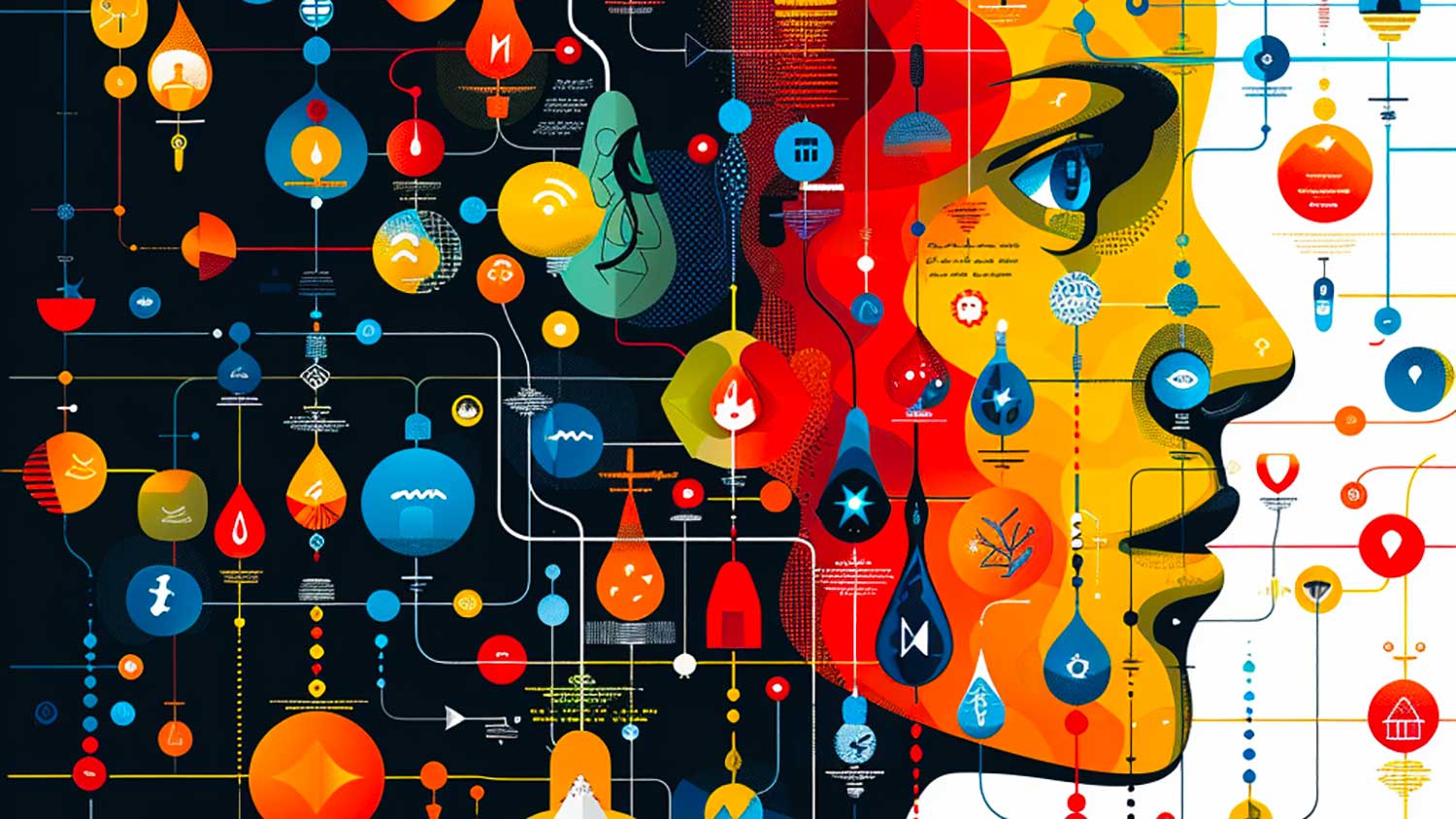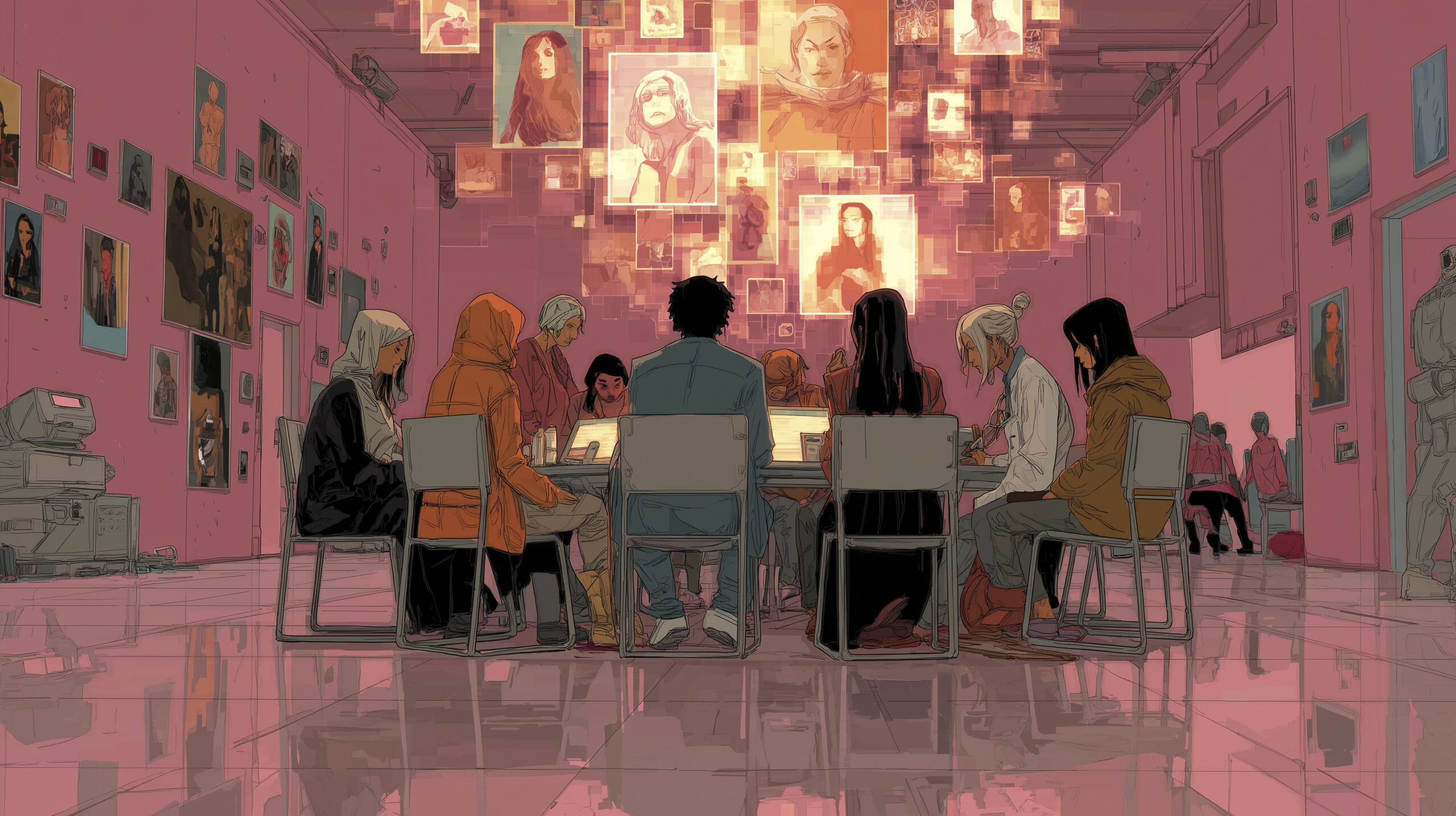As the year comes to a close, it’s the perfect time to reflect on the journey we’ve shared in 2024 and to anticipate the opportunities and challenges that lie ahead in 2025. This year has been transformative, marked by key lessons, inspiring collaborations, and meaningful conversations that have shaped how I approach leadership, education, and innovation.
This time between Christmas and New Year is special. It offers a pause to appreciate what we’ve learned, how far we’ve come, and the people who have enriched our journeys. Whether you’re a reader of my articles, a colleague, a student, or a fellow innovator, I want to take this opportunity to express my gratitude. Thank you for being part of this journey.
Let’s take a moment to review the themes we’ve explored, the lessons learned, and the trends poised to define the year ahead.
Here’s a brief look at the key topics I explored:
The Interplay of Leadership and Innovation
I delved into how leadership is evolving to embrace creativity and innovation, particularly in education and business. Articles like “LEI Insights: Fusing Leadership with Innovation in Creative Education” and “Bridging Theory and Practice: My Journey to Innovative Teaching in Creative Business” highlighted strategies to merge theoretical knowledge with practical application, empowering the next generation of leaders.
Personal Growth and Emotional Intelligence
Teaching and leadership often go hand in hand with self-reflection. Through pieces such as “Empathy in Action” and “Self-Reflection: The Cornerstone of Innovation Leadership,” I explored the role of emotional intelligence in nurturing not only teams but also ourselves as leaders and educators.
Harnessing Technology for Creative Education and Branding:
Technology was a recurring theme this year. From “AI Meets EQ: Personalizing Learning and Branding with Artificial Intelligence” to “Breaking the Mold: How Creative Technology Is Redefining Marketing,” I examined the impact of AI, AR, and VR on education, branding, and beyond.
Sustainability and Social Impact:
In “From Sustainability to Circularity in Creative Leadership” and “Brand Strategy for Social Good,” I addressed the pressing need for sustainability in creative industries, emphasizing the importance of embedding these principles into education and business practices.
The Transformative Role of Education
Whether through flipped classrooms, decentralized innovation, or real-world client challenges, I’ve shared my personal journey of adapting teaching methods to better prepare students for a dynamic, unpredictable future. Articles like “The Flipped Classroom: My Transformation as an Educator” and “Beyond the Classroom: Preparing Students for Real-World Creative Challenges” reflected this ongoing evolution.
These articles were not just about sharing knowledge; they were conversations. Through your comments, messages, and feedback, I’ve learned as much from you as you might have from me.
Lessons Learned
As I reflect on the past year, I am reminded of the diverse roles I’ve embraced, not only as an educator guiding students but also as a facilitator and consultant working alongside industry leaders, creative professionals, and organizations. These experiences have deepened my understanding of innovation, leadership, and the transformative power of collaboration.

Facilitation Bridges Gaps Between Ideas and Execution
Whether I was mentoring students or consulting with clients, one insight emerged consistently: facilitation is a critical skill. Guiding teams to move from ideation to actionable strategies has underscored the importance of asking the right questions, aligning goals, and fostering environments that spark creativity.
Empathy Elevates Leadership at Every Level
Across industries, from education to branding and beyond, empathy has proven indispensable. Leaders who prioritize emotional intelligence – listening deeply, understanding perspectives, and responding authentically – drive not only better outcomes but also stronger, more sustainable relationships.
Innovation Thrives on Collaboration
The most exciting breakthroughs this year came from partnerships; be it with industry experts, cross-functional teams, or my consulting clients. The fusion of diverse viewpoints and expertise has reinforced the idea that collaboration is the engine of meaningful innovation.
Adaptability is a Leader’s Greatest Asset
Industries are evolving at breakneck speed, and the ability to pivot is no longer a luxury, it’s a necessity. Whether helping organizations navigate technological disruptions or guiding creative teams through brand strategy challenges, I’ve seen the transformative impact of agility firsthand.
Storytelling is Key to Impactful Communication:
From crafting narratives in brand strategy to designing facilitative processes for teams, storytelling has been an invaluable tool. A compelling story not only clarifies complex ideas but also connects with audiences on a deeper level, driving alignment and action.
Teaching is a Two-Way Street
While I aim to inspire my students, I’ve realized how much they teach me in return. Their enthusiasm for decentralized innovation, creative problem-solving, and new technologies has pushed me to rethink traditional methods and explore uncharted territories.
Collaboration Drives Innovation
The most impactful moments of the year weren’t achieved alone. Partnerships with industry leaders, brainstorming sessions with colleagues, and real-world client projects with students highlighted how collaboration fosters creativity and innovation.
To the industry leaders, creative professionals, and organizations I’ve had the privilege of collaborating with: thank you for trusting me to guide your teams, shape your strategies, and facilitate innovation. Your vision and commitment have been a constant source of inspiration.
To my network of colleagues, clients, and readers: your engagement, insights, and shared experiences have enriched my journey this year. Whether through a comment on an article, a brainstorming session, or a collaborative project, you’ve reminded me that growth is never a solo endeavor.
To my students: thank you for challenging me to think differently and for embodying the creative energy that drives our work. Your perspectives are a reminder of the importance of preparing the next generation while staying connected to industry realities.
This year has reinforced a powerful truth: my role as a facilitator isn’t limited to one context. Whether guiding students, empowering professionals, or collaborating with organizations, the ultimate goal remains the same—to create value, spark innovation, and make a lasting impact.
Major Industry Trends
As we look back on 2024, it’s clear that several key trends have reshaped industries, redefining how we approach leadership, education, and innovation. These trends not only reflect the changing demands of the market but also highlight opportunities for leaders, educators, and organizations to adapt and thrive. Here are some of the most significant shifts I’ve observed this year:
The Integration of AI and Human-Centered Design
Artificial intelligence has rapidly transformed not only the creative and educational landscapes but also the way work is conducted across industries. From automating routine tasks to enabling predictive decision-making, AI has redefined productivity and efficiency. It allows professionals to focus on higher-value tasks that require critical thinking, creativity, and empathy.
Moreover, the true potential of AI lies in its integration with human-centered design principles. By pairing AI’s capabilities with emotional intelligence and a deep understanding of user needs, leaders can create solutions that are not only efficient but also meaningful and inclusive. This balance is the key to unlocking AI’s transformative power across diverse sectors.
The Shift Towards Decentralized Innovation
Decentralized ecosystems have emerged as a game-changer, particularly in education and business. Whether through open innovation models or collaborative networks, decentralization empowers diverse voices, fosters creativity, and accelerates problem-solving. This shift challenges traditional top-down approaches, urging leaders to embrace flexibility and collective intelligence.
Sustainability and Circularity in Leadership:
Sustainability has evolved from being a buzzword to a core strategy across industries. Businesses are increasingly adopting circular economy principles, focusing on long-term value creation rather than short-term gains. As a consultant and facilitator, I’ve seen the importance of embedding these principles into strategic planning to drive meaningful, lasting impact.
The Rise of Creative Technologies in Branding
Emerging technologies like augmented reality (AR), virtual reality (VR), and immersive storytelling are redefining how brands connect with audiences. These tools allow for highly interactive and engaging experiences, making them critical for leaders looking to differentiate their strategies in an increasingly saturated market.
The Demand for Adaptive Leadership
With rapid technological advancements and shifting societal expectations, adaptability has become a cornerstone of effective leadership. Leaders are now expected to navigate uncertainty with confidence, embracing change while maintaining a clear vision. This adaptability extends to organizational culture, where fostering resilience and openness to innovation is essential.
The Evolution of Learning and Development
Professional development has undergone a transformation, with experiential learning and real-world application taking center stage. Whether in creative education or corporate training, the focus has shifted to equipping individuals and teams with practical, future-ready skills.
These trends are not just isolated observations, they are interconnected forces shaping the future of industries and organizations. Recognizing and leveraging these shifts can position leaders and professionals for sustained success.
Looking Ahead to 2025
As 2024 comes to a close, the focus shifts to what lies ahead in 2025. Building on the momentum of this year, new opportunities and challenges are emerging, creating fertile ground for innovation and growth. Here are the key trends and priorities I see shaping the landscape in 2025

The Acceleration of AI-Augmented Workflows
AI will continue to redefine how we work, automating complex processes and enhancing human capabilities across industries. In 2025, the emphasis will likely move beyond efficiency to creating seamless, augmented workflows that prioritize creativity, strategic thinking, and collaboration. Leaders must ensure AI tools are not only effective but also equitable and transparent.
AI continues to redefine how industries operate, enhancing human capabilities and automating complex processes. As highlighted in Gartner’s Strategic Technology Trends, 2025 will see a deeper focus on augmented workflows, seamlessly integrating AI to enable creativity, strategic thinking, and collaboration. Organizations will need to prioritize ethical considerations and transparency while ensuring AI tools are inclusive and equitable.
A Deeper Integration of Sustainability in Business Models
Sustainability is set to become a non-negotiable element of business strategy. According to Forbes, companies adopting circular economy principles and committing to net-zero goals will lead the way. Leaders and teams must innovate to embed sustainable practices into every facet of their business in ways that drive long-term value.
The Rise of Personalized Learning and Development
As skill gaps grow and technologies evolve, tailored learning experiences will dominate professional development. As noted by Analytics Insight, experiential learning methods will help close skill gaps and keep individuals and organizations future-ready. In 2025, those who invest in personalized learning journeys will gain a significant competitive edge. Experiential and adaptive learning models, supported by AI, will help individuals and organizations stay future-ready. I’m excited to facilitate these personalized journeys, making lifelong learning accessible and impactful.
An Era of Boundary-Spanning Collaboration
Industries are converging, creating opportunities for partnerships that transcend traditional boundaries. The fusion of technology, design, and social good, as highlighted in Technology Magazine, will be a major driver of innovation. Facilitating these cross-disciplinary collaborations will allow organizations to unlock entirely new possibilities.
Emotional Intelligence as a Leadership Imperative
With the rapid pace of technological advancements, the human touch is becoming more important than ever. Leaders who prioritize and invest in emotional intelligence – listening deeply, fostering trust, and creating psychologically safe environments – will excel by building resilient teams and create environments where people thrive. Forbes emphasizes that this trait will shape organizational culture and team dynamics in 2025.
Storytelling as a Strategic Advantage
Storytelling remains a vital tool for leaders seeking to align teams, inspire innovation, and engage stakeholders. Whether crafting narratives for branding or driving internal buy-in for change initiatives, storytelling will be a differentiator. StartUs Insights highlights the growing importance of crafting authentic, compelling stories that resonate deeply with audiences.
2025 is shaping up to be a year of evolution and possibility. By aligning with these emerging trends, leaders, organizations, and educators can position themselves to create meaningful impact and drive purposeful growth in 2025. These trends, supported by insights from industry experts, illustrate the exciting opportunities ahead and the need for strategic, human-centered leadership.
As we prepare to embark on this journey, I invite you to consider: What will your role in 2025 look like? What trends resonate most with your goals? Let’s collaborate to make 2025 a year of innovation, sustainability, and success.
References
- Gartner. (n.d.). Top strategic technology trends for 2025.
Retrieved from https://www.gartner.com/en/articles/top-technology-trends-2025 - Forbes. (2024, December 19). 5 key trends to shape your business strategy for 2025.
Retrieved from https://www.forbes.com/sites/iese/2024/12/19/5-key-trends-to-shape-your-business-strategy-for-2025/ - Analytics Insight. (n.d.). Top business trends to watch in 2025.
Retrieved from https://www.analyticsinsight.net/business/top-business-trends-to-watch-in-2025 - Technology Magazine. (n.d.). Top 10: Trends of 2025.
Retrieved from https://technologymagazine.com/articles/top-10-trends-of-2025 - StartUs Insights. (n.d.). Technology trends to watch: Innovators guide.
Retrieved from https://www.startus-insights.com/innovators-guide/technology-trends-to-watch - GeeksforGeeks. (n.d.). Top 25 new technology trends in 2025.
Retrieved from https://www.geeksforgeeks.org/top-new-technology-trends - SG Analytics. (n.d.). Top 10 technology trends to watch in 2025.
Retrieved from https://www.sganalytics.com/blog/top-10-technology-trends - CEO Today. (2024). Business trends predicted for 2025: The future of commerce, AI, and entrepreneurship.
Retrieved from https://www.ceotodaymagazine.com/2024/12/business-trends-predicted-for-2025-the-future-of-commerce-ai-and-entrepreneurship



